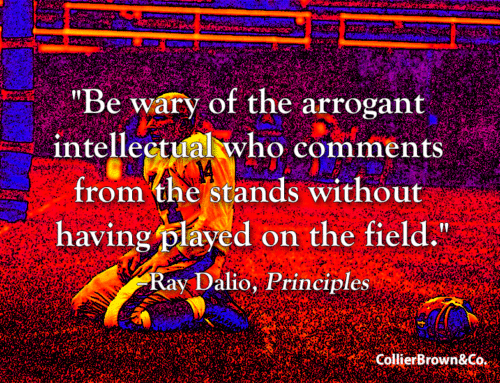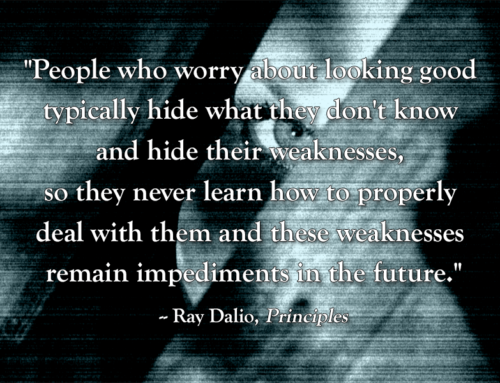Charisma is to leadership as external stimulants are to getting in shape or winning. A leader’s charisma can make the leader – and their followers – feel like things are going great. Sometimes performance IS improved by a charismatic leader – but only temporarily, and not in a sustainable fashion.
Followers, like the human body, will enjoy an easy path to “getting in shape” or “winning” – and when the stimulant (the charisma effect) wears off, like the human body, they will be worse off – in feeling (withdrawal pains) and in fact (still not in shape or the “winnings” are stripped away).
The heart of the matter with leadership and charisma is this: charisma focuses attention on the leader rather than on the vision of a better future. To be sure, the most clever charismatics talk about the future and speak often about “vision.” Listen carefully. Who is at the center of that vision? Who is the one making it happen?
In the context of leadership, charisma should be viewed through two lenses: the first is that it is like an external stimulant – generally, not good for you, except in rare instances. Secondly, it should be viewed and treated as any other disability. That is, the leader should be aware of their charismatic disability, understand the potential limitations it brings, make appropriate considerations or compensations, and take appropriate action to ensure the disability doesn’t force limitations on the organization.
In his book, Great by Choice, author Jim Collins studied a set of major companies that achieved spectacular results over 15 or more years while operating in unstable environments (as well as comparison companies who didn’t fare so well); these companies are referred to as “10Xers” for providing shareholder returns at least 10 times greater than their industry. Collins notes, “The best leaders we studied did not have a visionary ability to predict the future. They observed what worked, figured out why it worked, and built upon proven foundations. They were not more risk taking, more bold, more visionary, and more creative than the comparisons. They were more disciplined, more empirical, and more paranoid.”
Apparently, they weren’t cursed by charisma.
In Other Words…
“I am your opus.” ― Sylvia Plath, The Collected Poems
“The moment you doubt whether you can fly, you cease for ever to be able to do it.” ― J.M. Barrie, Peter Pan
“In most cases, those who want power probably shouldn’t have it, those who enjoy it probably do so for the wrong reasons, and those who want most to hold on to it don’t understand that it’s only temporary.” ― John C. Maxwell, Becoming a Person of Influence
“The smart way to keep people passive and obedient is to strictly limit the spectrum of acceptable opinion, but allow very lively debate within that spectrum….” ― Noam Chomsky, The Common Good
“She kept up her compliments, and I kept up my determination to deserve them or die.” ― Mark Twain, The Innocents Abroad
“A leader is best
When people barely know he exists
Of a good leader, who talks little,
When his work is done, his aim fulfilled,
They will say, “We did this ourselves.” ― Lao Tzu, Tao Te Ching
In The Word…
“But the Lord said to Samuel, “Do not look on his appearance or on the height of his stature, because I have rejected him. For the Lord sees not as man sees: man looks on the outward appearance, but the Lord looks on the heart.” – 1 Samuel 16:7






